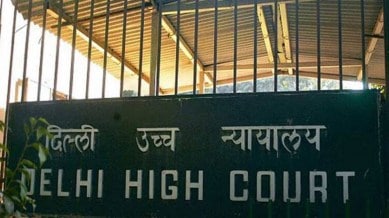Stay updated with the latest - Click here to follow us on Instagram
‘Can’t make exception because victim says relationship is consensual’: Delhi HC refuses to quash POCSO case against man
Refuses to quash FIR against man booked under POCSO for marrying minor

Refusing to quash criminal proceedings involving a child – now an adult – who had got married when she was a minor, resulting in her husband being booked under the Protection of Children from Sexual Offences (POCSO) Act, the Delhi High Court has held that an order quashing the man’s prosecution sits “squarely at odds with the legislative purpose of both POCSO and the child marriage law, which is to deter early marriage and sexual exploitation of children”.
The woman, who was around 16 years old when she got married, is seeking quashing of the criminal proceedings against her husband and family members on the ground that the relationship was consensual. The man was booked in 2023 after a call related to domestic violence was received on the police helpline number.
Justice Sanjeev Narula, in an order on November 14, noted that unlike IPC Section 375 (rape), which examines consent and free will for ingredients of the offence, POCSO Act “does not treat absence of consent as a constituent element when the victim is a child”.
“Since the Parliament has fixed 18 as the age below which the law refuses to recognise sexual consent, this court, exercising jurisdiction under Article 226 of the Constitution, cannot, in the guise of doing equity, write in a judge-made exception for ‘near-majority, consensual relationships’. To do so would be to cross the line from interpretation into legislation,” Justice Narula reasoned.
“Subsequent developments in the relationship, however… the couple living together, the birth of a child, the victim’s present stance, cannot retrospectively legalise conduct, which the law, at the time it occurred, treated as an offence. At this pre-trial stage, where the essential ingredients of the offence are disclosed and there is no patent abuse of process, there is no room for quashing the proceedings,” he added.
The couple also brought their child, born in January 2024, to the court.
After speaking to the woman, the court recorded in its order, “Seeing the victim with her infant child brings home that these proceedings are tied to the stability of a young family. At the same time, this is precisely the kind of matter in which the statutory framework of the POCSO Act sits uneasily with lived reality and the tension between the two is stark.”
“The proper inquiry in such cases is not whether the minor consented, but whether the prosecution has established the child’s age and the occurrence of the proscribed act; once those elements stand proved, the supposed consent of the minor cannot be invoked as a defence to criminal liability…”
“There is, moreover, a wider institutional concern. The present case does not involve only two young persons who chose to live together; the parents of both sides stand arraigned under the Prohibition of Child Marriage Act, 2006 on the allegation that they facilitated or condoned a marriage involving a minor girl. An order quashing the prosecution in such circumstances would almost inevitably be perceived as judicial endorsement of the notion that underage marriages can be insulated from legal consequences, so long as the parties subsequently present themselves as a settled family,” the court said.
“Courts cannot ignore the possibility that what appears, on the surface, as voluntary acquiescence by a 16-year-old may, in fact, be the product of familial pressure or community expectations, especially once pregnancy has occurred. To snuff out the prosecution at the threshold would risk sending a message that child marriages and sexual relationships with minors can be retrospectively sanitised by arranging a ceremony and continuing cohabitation. That would sit squarely at odds with the legislative purpose of both POCSO and the child marriage law, which is to deter early marriage and sexual exploitation of children,” Justice Narula observed.
Noting that this is “one of those hard cases where the pull of equity is strong, but the command of the statute is stronger”, the court, however, emphasised that it “cannot carve out an exception to the statute merely because the victim describes the relationship as consensual”.